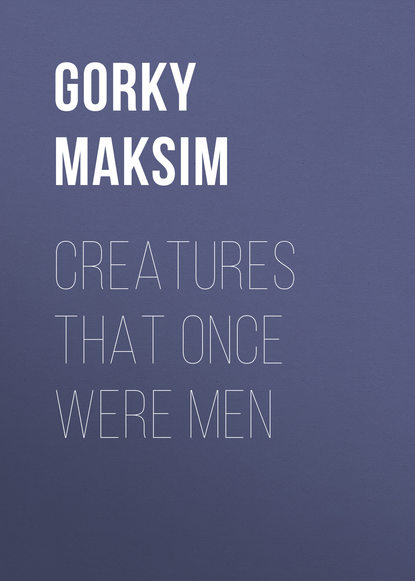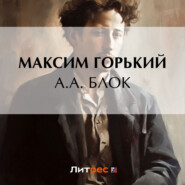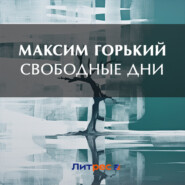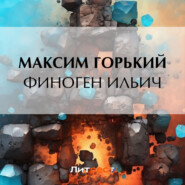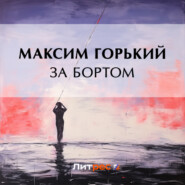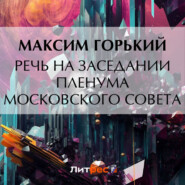По всем вопросам обращайтесь на: info@litportal.ru
(©) 2003-2025.
✖
Creatures That Once Were Men
Настройки чтения
Размер шрифта
Высота строк
Поля
This made him anxious to conceal his identity, for he supposed, and with reason, that if the police found him out he would have to account for the fact of his not paying his bill, and for having struck the man. Besides, he could not remember exactly if he had struck one or two blows, or more.
The position was growing more complicated.
I resolved to work till I had earned a sum sufficient to carry him back to Batoum. But alas! I soon realized that my plan could not be carried out quickly – by no means quickly – for my half-starved prince ate as much as three men, and more. At that time there was a great influx of peasants into the Crimea from the famine-stricken northern parts of Russia, and this had caused a great reduction in the wages of the workers at the docks. I succeeded in earning only eighty kopecks a day, and our food cost us sixty kopecks.
I had no intention of staying much longer at Odessa, for I had meant, some time before I came across the prince, to go on to the Crimea. I therefore suggested to him the following plan: that we should travel together on foot to the Crimea, and there I would find him another companion, who would continue the journey with him as far as Tiflis; if I should fail in finding him a fellow-traveler, I promised to go with him myself.
The prince glanced sadly at his elegant boots, his hat, his trousers, while he smoothed and patted his coat.
He thought a little time, sighed frequently, and at last agreed.
So we started off from Odessa to Tiflis on foot.
CHAPTER II
By the time we had arrived at Kherson I knew something of my companion. He was a naively savage, exceedingly undeveloped young fellow; gay when he was well fed, dejected when he was hungry, like a strong, easy-tempered animal. On the road he gave me accounts of life in the Caucasus, and told me much about the landowners; about their amusements, and the way they treated the peasantry. His stories were interesting, and had a beauty of their own; but they produced on my mind a most unfavorable impression of the narrator himself.
To give one instance. There was at one time a rich prince, who had invited many friends to a feast. They partook freely of all kinds of Caucasian wines and meats, and after the feast the prince led his guests to his stables. They saddled the horses, the prince picked out the handsomest, and rode him into the fields. That was a fiery steed! The guests praised his form and paces. Once more the prince started to ride round the field, when at the same moment a peasant appeared, riding a splendid white horse, and overtook the prince – overtook him and laughed proudly! The prince was put to shame before his guests! He knit his brow, and beckoned the peasant to approach; then, with a blow of his dagger, he severed the man's head from his body. Drawing his pistol, he shot the white horse in the ear. He then delivered himself up to justice, and was condemned to penal servitude.
Through the whole story there rang a note of pity for the prince.
I endeavored to make Shakro understand that his pity was misplaced.
"There are not so many princes," he remarked didactically, "as there are peasants. It cannot be just to condemn a prince for a peasant. What, after all is a peasant? he is no better than this!" He took up a handful of soil, and added: "A prince is a star!"
We had a dispute over this question and he got angry. When angry, he showed his teeth like a wolf, and his features seemed to grow sharp and set.
"Maxime, you know nothing about life in the Caucasus; so you had better hold your tongue!" he shouted.
All my arguments were powerless to shatter his naive convictions. What was clear to me seemed absurd to him. My arguments never reached his brain; but if ever I did succeed in showing him that my opinions were weightier and of more value than his own, he would simply say:
"Then go and live in the Caucasus, and you will see that I am right.
What every one does must be right. Why am I to believe what you say?
You are the only one who says such things are wrong; while thousands say they are right!"
Then I was silent, feeling that words were of no use in this case; only facts could confute a man, who believed that life, just as it is, is entirely just and lawful. I was silent, while he was triumphant, for he firmly believed that he knew life and considered his knowledge of it something unshakeable, stable and perfect. My silence seemed to him to give him a right to strike a fuller note in his stories of Caucasian life – a life full of so much wild beauty, so much fire and originality.
These stories, though full of interest and attraction for me, continued to provoke my indignation and disgust by their cruelty, by the worship of wealth and of strength which they displayed, and the absence of that morality which is said to be binding on all men alike.
Once I asked him if he knew what Christ had taught.
"Yes, of course I do!" he replied, shrugging his shoulders.
But after I had examined him on this point, it turned out that all he knew was, that there had once been a certain Christ, who protested against the laws of the Jews, and that for this protest he was crucified by the Jews. But being a God, he did not die on the cross, but ascended into heaven, and gave the world a new law.
"What law was that?" I inquired.
He glanced at me with ironical incredulity, and asked:
"Are you a Christian? Well, so am I a Christian.
Nearly all the people in the world are Christians.
Well, why do you ask then? You know the way they all live;
they follow the law of Christ!"
I grew excited, and began eagerly to tell him about Christ's life. At first he listened attentively; but this attention did not last long, and he began to yawn.
I understood that it was useless appealing to his heart, and I once more addressed myself to his head, and talked to him of the advantages of mutual help and of knowledge, the benefits of obedience to the law, speaking of the policy of morality and nothing more.
"He who is strong is a law to himself! He has no need of learning; even blind, he'll find his way," Prince Shakro replied, languidly.
Yes, he was always true to himself. This made me feel a respect for him; but he was savage and cruel, and sometimes I felt a spark of hatred for Prince Shakro. Still, I had not lost all hope of finding some point of contact with him, some common ground on which we could meet, and understand one another.
I began to use simpler language with the prince, and tried to put myself mentally on a level with him. He noticed these attempts of mine, but evidently mistaking them for an acknowledgment on my part of his superiority, adopted a still more patronizing tone in talking to me. I suffered, as the conviction came home to me, that all my arguments were shattered against the stone wall of his conception of life.
CHAPTER III
Soon we had left Perekop behind us. We were approaching the Crimean mountains. For the last two days we bad seen them against the horizon. The mountains were pale blue, and looked like soft heaps of billowy clouds. I admired them in the distance, and I dreamed of the southern shore of the Crimea. The prince hummed his Georgian songs and was gloomy. We had spent all our money, and there was no chance of earning anything in these parts.
We bent our steps toward Feodosia, where a new harbor was in course of construction. The prince said that he would work, too, and that when we had earned enough money we would take a boat together to Batoum.
In Batoum, he said, he had many friends, and with their assistance he could easily get me a situation – as a house-porter or a watchman. He clapped me patronizingly on the back, and remarked, indulgently, with a peculiar click of his tongue:
"I'll arrange it for you! You shall have such a life tse', tse'! You will have plenty of wine, there will be as much mutton as you can eat. You can marry a fat Georgian girl; tse', tse', tse'! She will cook you Georgian dishes; give you children – many, many children! tse', tse', tse'!"
This constant repetition of "tse', tse', tse'!" surprised me at first; then it began to irritate me, and, at last, it reduced me to a melancholy frenzy. In Russia we use this sound to call pigs, but in the Caucasus it seems to be an expression of delight and of regret, of pleasure and of sadness.
Shakro's smart suit already began to look shabby; his elegant boots had split in many places. His cane and hat had been sold in Kherson. To replace the hat he had bought an old uniform cap of a railway clerk. When he put this cap on for the first time, he cocked it on one side of his head, and asked: "Does it suit me? Do I look nice?"
CHAPTER IV
At last we reached the Crimea. We had left Simpheropol behind us, and were moving towards Jalta.
I was walking along in silent ectasy, marvelling at the beauty of this strip of land, caressed on all sides by the sea.
The prince sighed, complained, and, casting dejected glances about him, tried filling his empty stomach with wild berries. His knowledge of their nutritive qualities was extremely limited, and his experiments were not always successful. Often he would remark, ill-humoredly:
"If I'm turned inside out with eating this stuff, how am I to go any farther? And what's to be done then?"
We had no chance of earning anything, neither had we a penny left to buy a bit of bread. All we had to live on was fruit, and our hopes for the future.
The prince began to reproach me with want of enterprise and laziness – with "gaping about," as he expressed it. Altogether, he was beginning to bore me; but what most tried my patience were his fabulous accounts of his appetite. According to these accounts, after a hearty breakfast at noon of roast lamb, and three bottles of wine, he could easily, at his two o'clock dinner, dispose of three plates of soup, a pot of pilave, a dish of shasleek, and various other Caucasian dishes, washed down abundantly with wine. For whole days he would talk of nothing but his gastronomic tastes and knowledge: and while thus talking, he would smack his lips, his eyes would glow, he would show his teeth, and grind them together; would suck in and swallow the saliva that came dripping from his eloquent lips. Watching him at these moments, I conceived for him a deep feeling of disgust, which I found difficult to conceal.
Near Jalta I obtained a job at clearing away the dead branches in an orchard. I was paid fifty kopecks in advance, and laid out the whole of this money on bread and meat. No sooner had I returned with my purchase, than the gardener called me away to my work. I had to leave my store of food with Shakro, who, under the pretext of a headache, had declined to work. When I returned in an hour's time, I had to acknowledge that Shakro's stories of his appetite were all too true. Not a crumb was left of all the food I had bought! His action was anything but a friendly one, but I let it pass. Later on I had to acknowledge to myself the mistake I then made.
The position was growing more complicated.
I resolved to work till I had earned a sum sufficient to carry him back to Batoum. But alas! I soon realized that my plan could not be carried out quickly – by no means quickly – for my half-starved prince ate as much as three men, and more. At that time there was a great influx of peasants into the Crimea from the famine-stricken northern parts of Russia, and this had caused a great reduction in the wages of the workers at the docks. I succeeded in earning only eighty kopecks a day, and our food cost us sixty kopecks.
I had no intention of staying much longer at Odessa, for I had meant, some time before I came across the prince, to go on to the Crimea. I therefore suggested to him the following plan: that we should travel together on foot to the Crimea, and there I would find him another companion, who would continue the journey with him as far as Tiflis; if I should fail in finding him a fellow-traveler, I promised to go with him myself.
The prince glanced sadly at his elegant boots, his hat, his trousers, while he smoothed and patted his coat.
He thought a little time, sighed frequently, and at last agreed.
So we started off from Odessa to Tiflis on foot.
CHAPTER II
By the time we had arrived at Kherson I knew something of my companion. He was a naively savage, exceedingly undeveloped young fellow; gay when he was well fed, dejected when he was hungry, like a strong, easy-tempered animal. On the road he gave me accounts of life in the Caucasus, and told me much about the landowners; about their amusements, and the way they treated the peasantry. His stories were interesting, and had a beauty of their own; but they produced on my mind a most unfavorable impression of the narrator himself.
To give one instance. There was at one time a rich prince, who had invited many friends to a feast. They partook freely of all kinds of Caucasian wines and meats, and after the feast the prince led his guests to his stables. They saddled the horses, the prince picked out the handsomest, and rode him into the fields. That was a fiery steed! The guests praised his form and paces. Once more the prince started to ride round the field, when at the same moment a peasant appeared, riding a splendid white horse, and overtook the prince – overtook him and laughed proudly! The prince was put to shame before his guests! He knit his brow, and beckoned the peasant to approach; then, with a blow of his dagger, he severed the man's head from his body. Drawing his pistol, he shot the white horse in the ear. He then delivered himself up to justice, and was condemned to penal servitude.
Through the whole story there rang a note of pity for the prince.
I endeavored to make Shakro understand that his pity was misplaced.
"There are not so many princes," he remarked didactically, "as there are peasants. It cannot be just to condemn a prince for a peasant. What, after all is a peasant? he is no better than this!" He took up a handful of soil, and added: "A prince is a star!"
We had a dispute over this question and he got angry. When angry, he showed his teeth like a wolf, and his features seemed to grow sharp and set.
"Maxime, you know nothing about life in the Caucasus; so you had better hold your tongue!" he shouted.
All my arguments were powerless to shatter his naive convictions. What was clear to me seemed absurd to him. My arguments never reached his brain; but if ever I did succeed in showing him that my opinions were weightier and of more value than his own, he would simply say:
"Then go and live in the Caucasus, and you will see that I am right.
What every one does must be right. Why am I to believe what you say?
You are the only one who says such things are wrong; while thousands say they are right!"
Then I was silent, feeling that words were of no use in this case; only facts could confute a man, who believed that life, just as it is, is entirely just and lawful. I was silent, while he was triumphant, for he firmly believed that he knew life and considered his knowledge of it something unshakeable, stable and perfect. My silence seemed to him to give him a right to strike a fuller note in his stories of Caucasian life – a life full of so much wild beauty, so much fire and originality.
These stories, though full of interest and attraction for me, continued to provoke my indignation and disgust by their cruelty, by the worship of wealth and of strength which they displayed, and the absence of that morality which is said to be binding on all men alike.
Once I asked him if he knew what Christ had taught.
"Yes, of course I do!" he replied, shrugging his shoulders.
But after I had examined him on this point, it turned out that all he knew was, that there had once been a certain Christ, who protested against the laws of the Jews, and that for this protest he was crucified by the Jews. But being a God, he did not die on the cross, but ascended into heaven, and gave the world a new law.
"What law was that?" I inquired.
He glanced at me with ironical incredulity, and asked:
"Are you a Christian? Well, so am I a Christian.
Nearly all the people in the world are Christians.
Well, why do you ask then? You know the way they all live;
they follow the law of Christ!"
I grew excited, and began eagerly to tell him about Christ's life. At first he listened attentively; but this attention did not last long, and he began to yawn.
I understood that it was useless appealing to his heart, and I once more addressed myself to his head, and talked to him of the advantages of mutual help and of knowledge, the benefits of obedience to the law, speaking of the policy of morality and nothing more.
"He who is strong is a law to himself! He has no need of learning; even blind, he'll find his way," Prince Shakro replied, languidly.
Yes, he was always true to himself. This made me feel a respect for him; but he was savage and cruel, and sometimes I felt a spark of hatred for Prince Shakro. Still, I had not lost all hope of finding some point of contact with him, some common ground on which we could meet, and understand one another.
I began to use simpler language with the prince, and tried to put myself mentally on a level with him. He noticed these attempts of mine, but evidently mistaking them for an acknowledgment on my part of his superiority, adopted a still more patronizing tone in talking to me. I suffered, as the conviction came home to me, that all my arguments were shattered against the stone wall of his conception of life.
CHAPTER III
Soon we had left Perekop behind us. We were approaching the Crimean mountains. For the last two days we bad seen them against the horizon. The mountains were pale blue, and looked like soft heaps of billowy clouds. I admired them in the distance, and I dreamed of the southern shore of the Crimea. The prince hummed his Georgian songs and was gloomy. We had spent all our money, and there was no chance of earning anything in these parts.
We bent our steps toward Feodosia, where a new harbor was in course of construction. The prince said that he would work, too, and that when we had earned enough money we would take a boat together to Batoum.
In Batoum, he said, he had many friends, and with their assistance he could easily get me a situation – as a house-porter or a watchman. He clapped me patronizingly on the back, and remarked, indulgently, with a peculiar click of his tongue:
"I'll arrange it for you! You shall have such a life tse', tse'! You will have plenty of wine, there will be as much mutton as you can eat. You can marry a fat Georgian girl; tse', tse', tse'! She will cook you Georgian dishes; give you children – many, many children! tse', tse', tse'!"
This constant repetition of "tse', tse', tse'!" surprised me at first; then it began to irritate me, and, at last, it reduced me to a melancholy frenzy. In Russia we use this sound to call pigs, but in the Caucasus it seems to be an expression of delight and of regret, of pleasure and of sadness.
Shakro's smart suit already began to look shabby; his elegant boots had split in many places. His cane and hat had been sold in Kherson. To replace the hat he had bought an old uniform cap of a railway clerk. When he put this cap on for the first time, he cocked it on one side of his head, and asked: "Does it suit me? Do I look nice?"
CHAPTER IV
At last we reached the Crimea. We had left Simpheropol behind us, and were moving towards Jalta.
I was walking along in silent ectasy, marvelling at the beauty of this strip of land, caressed on all sides by the sea.
The prince sighed, complained, and, casting dejected glances about him, tried filling his empty stomach with wild berries. His knowledge of their nutritive qualities was extremely limited, and his experiments were not always successful. Often he would remark, ill-humoredly:
"If I'm turned inside out with eating this stuff, how am I to go any farther? And what's to be done then?"
We had no chance of earning anything, neither had we a penny left to buy a bit of bread. All we had to live on was fruit, and our hopes for the future.
The prince began to reproach me with want of enterprise and laziness – with "gaping about," as he expressed it. Altogether, he was beginning to bore me; but what most tried my patience were his fabulous accounts of his appetite. According to these accounts, after a hearty breakfast at noon of roast lamb, and three bottles of wine, he could easily, at his two o'clock dinner, dispose of three plates of soup, a pot of pilave, a dish of shasleek, and various other Caucasian dishes, washed down abundantly with wine. For whole days he would talk of nothing but his gastronomic tastes and knowledge: and while thus talking, he would smack his lips, his eyes would glow, he would show his teeth, and grind them together; would suck in and swallow the saliva that came dripping from his eloquent lips. Watching him at these moments, I conceived for him a deep feeling of disgust, which I found difficult to conceal.
Near Jalta I obtained a job at clearing away the dead branches in an orchard. I was paid fifty kopecks in advance, and laid out the whole of this money on bread and meat. No sooner had I returned with my purchase, than the gardener called me away to my work. I had to leave my store of food with Shakro, who, under the pretext of a headache, had declined to work. When I returned in an hour's time, I had to acknowledge that Shakro's stories of his appetite were all too true. Not a crumb was left of all the food I had bought! His action was anything but a friendly one, but I let it pass. Later on I had to acknowledge to myself the mistake I then made.





